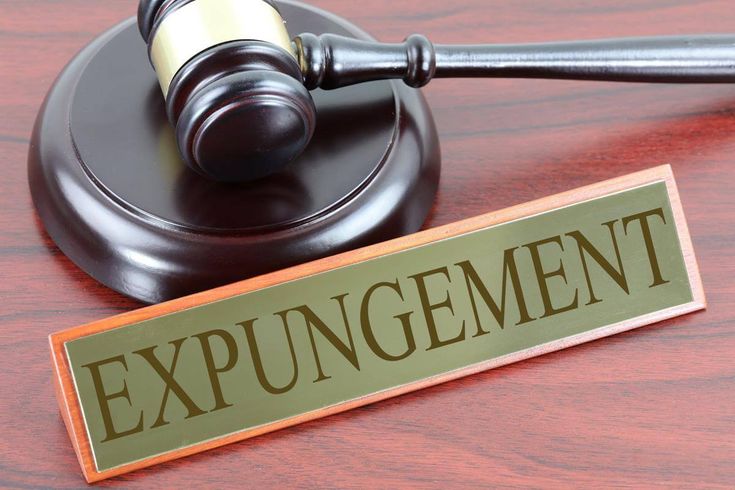Domestic Violence Lawyers Help Victims Seek Justice and Safety

Introduction
Domestic violence is a serious issue affecting millions of people across the United States. According to recent statistics from the NCADV (National Coalition Against Domestic Violence), domestic violence accounts for 21% of all violent crime in America and 20 people experience it every minute. Victims of domestic violence often feel scared, hopeless, and alone. However, there are protections in place and people who can help. Domestic violence lawyers play a crucial role in helping victims escape abuse, seek justice if desired, receive support services, regain independence, and move forward with their lives.
The Role of a Domestic Violence Lawyer
A domestic violence lawyer serves victims in the following key ways:
- Providing legal counsel and representation
- Helping clients file for restraining orders
- Working with law enforcement
- Representing clients in court
- Connecting clients with support services
- Advocating for victim rights and compensation
Legal Counsel and Representation
One of the most important services a domestic violence lawyer provides is legal advice and representation tailored to the client’s situation. This can involve:
- Informing victims of their legal rights and options
- Listening to clients’ stories and gathering evidence
- Determining the best legal strategies for each case
- Representing clients in divorce and child custody disputes
- Negotiating with the abuser or their attorney
- Fighting for financial support and arrangements
Restraining Orders
Domestic violence lawyers can assist clients file for protective orders like restraining orders and no-contact orders. These court-ordered injunctions aim to prevent further abuse and threats from the perpetrator.
The process for obtaining a restraining order varies by state but generally involves submitting forms and documents, participating in a court hearing, and serving notice to the abuser if approved. A qualified attorney guides victims through the complex legal process.
Also Read:
https://besraha-news.online/penalty-abatement-lawyers/
Working with Law Enforcement
Domestic violence lawyers often collaborate with law enforcement to:
- Encourage clients to report abuse
- Assist clients in filing police reports
- Follow up on investigations
- Monitor criminal cases involving the client
- Push for legal protections and tough prosecution
Court Representation
If a domestic violence case goes to trial, victims have the right to free legal counsel and representation. An attorney stands up for the client in court by:
- Presenting evidence of abuse
- Questioning witnesses
- Advocating for the victim’s story to be heard
- Fighting for justice and accountability
Support Service Referrals
The trauma of domestic violence extends beyond physical harm with mental, emotional, and financial consequences. Domestic violence lawyers connect clients to support services like:
- Shelters/housing assistance
- Counseling/therapy
- Financial help
- Peer support groups
This comprehensive approach promotes safety, stability and healing.
Victim Advocacy
Beyond their own clients, domestic violence lawyers advocate to strengthen legal protections and provide help for all victims. Many lawyers volunteer with violence prevention groups or serve on related councils/committees.
Choosing a Domestic Violence Lawyer
If you or someone you know is experiencing domestic violence, contacting a qualified lawyer is an important step towards safety and justice. Consider the following when selecting legal representation:
Specialized Experience
Look for an attorney well-versed in local domestic violence laws with extensive experience handling these sensitive cases. Specialized knowledge is key.
Passion for Helping Survivors
The best domestic violence lawyers are dedicated advocates motivated to support survivors. Make sure yours shows genuine commitment.
Courtroom Track Record
Verify your lawyer has a consistent history of securing restraining orders and favorable case outcomes for clients. Checking credentials is advised.
Personality Fit
You need an attorney who makes you feel comfortable, understood, and hopeful. Arrange consultations to find someone you connect with.
| Factor | Description |
| Specialized Experience | Extensive background in local domestic violence laws |
| Passion for Helping | Dedicated to supporting survivors |
| Courtroom Track Record | History of positive case results |
| Personality Fit | Attorney you feel comfortable with |
Overcoming Obstacles to Leaving
Despite desires to escape abuse, many domestic violence victims encounter difficulties leaving dangerous situations and relationships.
Fear and Threats
Victims often remain silent due to realistic fears of escalated attacks, stalking or even homicide if attempting to separate from an abusive partner. Perpetrators may threaten harm or prevent access to financial resources. These dynamics keep victims trapped.
Concerns for Children
Victims with children face wrenching decisions weighing potential risks to their kids’ safety and wellbeing against the definite harms of continued abuse at home. Custody issues also deter victims. These situations demonstrate why expert legal guidance is invaluable.
Cultural/Religious Factors
Some victims come from communities and faiths where divorce and outside intervention are frowned upon. Victims can feel conflicted by these societal or internalized beliefs. Legal advocates help navigate these complex dilemmas with sensitivity.
Self-Blame and Denial
The dynamics of domestic violence relationships often destroy victims’ self-esteem. Some blame themselves and remain emotionally tied to their abuser. These psychological factors impede separation. Expert counseling assists victims shift mindsets towards empowerment and self-care.
The Legal Process of Escaping Abuse
With the help of a compassionate domestic violence lawyer guiding them through every step, survivors can overcome obstacles, escape abuse and secure brighter futures. The journey to freedom often involves the following general legal process:
Step 1: Reporting Abuse and Seeking Counsel
The first vital steps are reporting abuse to authorities and retaining a lawyer to provide legal options. This empowers victims, builds necessary documentation, and starts safety planning.
Step 2: Filing for Court Orders
Domestic violence lawyers assist clients file petitions requesting legal orders of protection prohibiting all contact from the abuser. Courts provide emergency restraining orders on short notice, buying time until a full hearing is scheduled later. During this period, documentation continues strengthening the victim’s case.
Step 3: Securing Long-Term Injunctions
At plenary hearings, judges consider testimony and evidence determining whether long-term restraining orders are warranted. Skilled lawyers adeptly demonstrate a preponderance of abuse meeting statutory requirements. Judges granting final multi-year no contact injunctions enforce severe penalties for violations letting survivors rebuild lives safely.
Step 4: Custody, Divorce and Financial Proceedings
Ongoing legal processes establish permanent separations securing children’s wellbeing if applicable through supervised custody arrangements limiting risks of further abuse. Banning weapons possessions adds protection. Negotiating fair divorce terms and spousal/child financial support facilitates the process of starting over.
Why Hiring a Lawyer Matters
Navigating the emotional trauma and complex legal system alone can seem impossible for domestic violence victims. Statistically, over 80% of unrepresented domestic violence survivors entering court do not achieve desired results compared to only 10% failure rates when securing representation. Domestic violence lawyers level the playing field providing expertise survivors badly need getting justice and safely breaking free. If you or a loved one suffers abuse, contact an attorney today to rediscover hope.
References
National Coalition Against Domestic Violence. Latest domestic violence statistics and facts. Retrieved February 20, 2024, from https://ncadv.org/statistics
The Hotline. Trauma bonds: What are they and how can we overcome them? Retrieved February 21, 2024, from https://www.thehotline.org/resources/trauma-bonds-what-are-they-and-how-can-we-overcome-them







